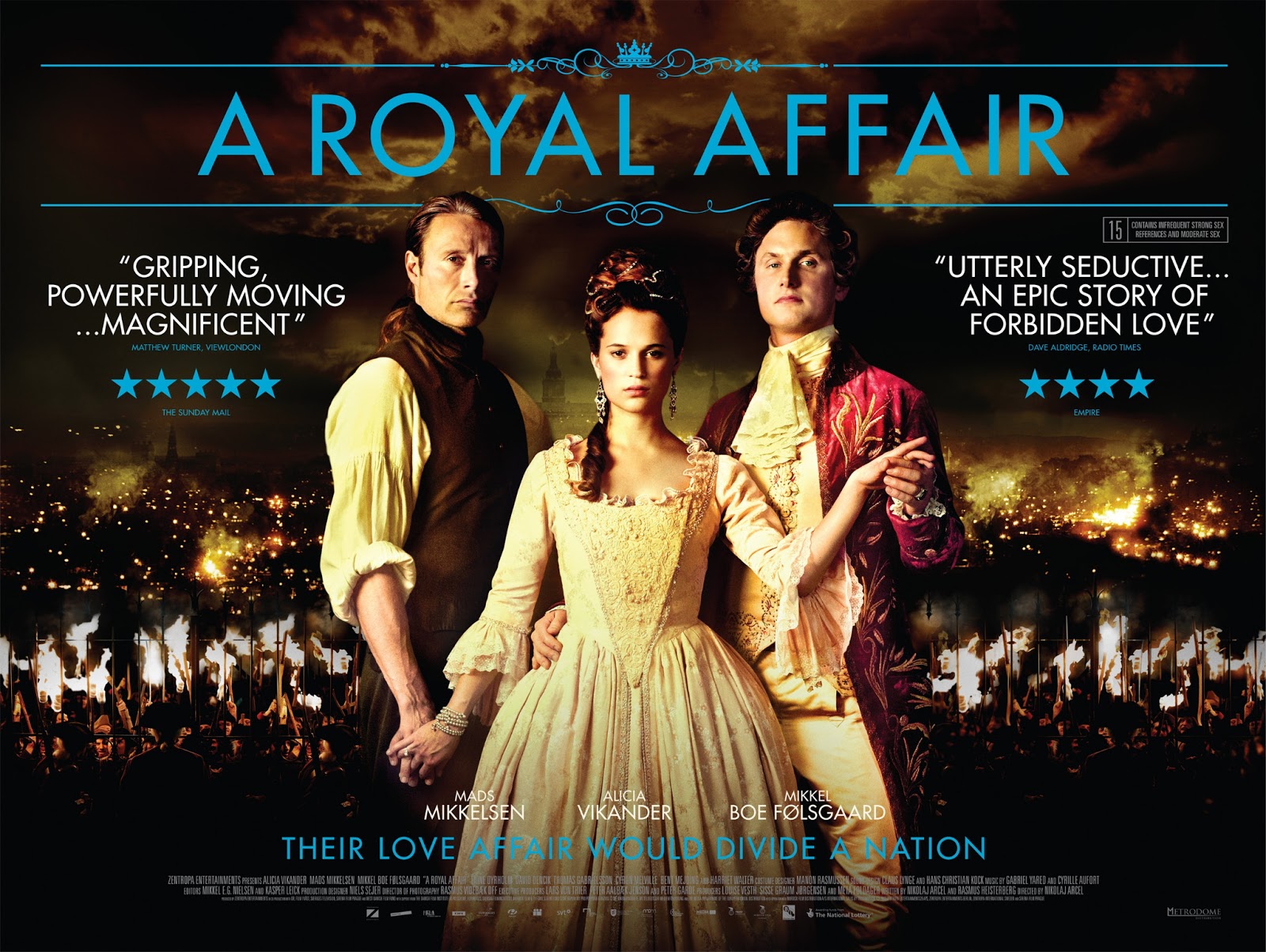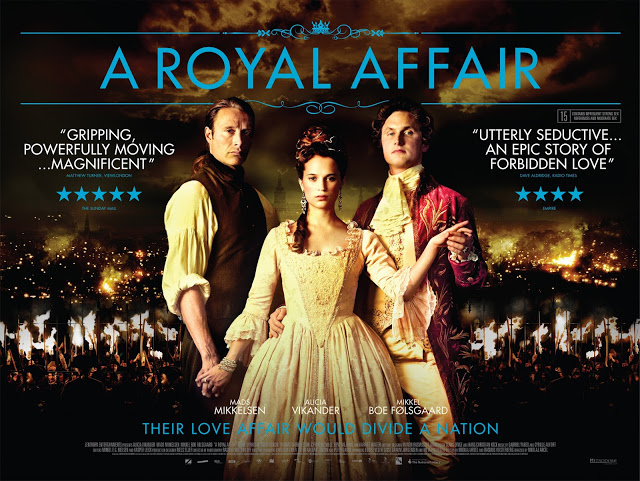This is a guest post by Nandini Rathi.
A subtitled Danish drama about Danish coalition politics sounds rather elitist (if not absurdly boring) and one that, at best, would appeal to a niche audience. However headlines such as “Stop what you are doing and go watch Borgen,” “Why Danish Political drama Borgen is Everything” and “Why the World fell for Borgen” from sources ranging from The Telegraph to the Buzzfeed may make you reconsider that initial assumption. Borgen, a one-hour series about a charismatic politician coming to power as the first woman Prime Minister of Denmark, defies expectations. Now internationally famous, the series has earned precious acclaim from critics and fans alike for its riveting machiavellian politics and strong female characters. The plot skillfully weaves together a fictionalized battlefield of parliamentary politics and journalistic media, without neglecting the exploration of its impact in the characters’ personal lives. Borgen anticipated a number of events — most notably, the election of Denmark’s actual first female Prime Minister (Helle Thorning-Schmidt), which occurred while the show was in its second season.

Borgen is better for a brilliant group of actors cast well for its complex characters. The main character is Birgitte Nyborg (played by Sidse Babett Knudsen), a first-rate politician in her early 40s and the leader of the Moderates, who is unexpectedly elected the Prime Minister. In a parallel story, we meet the 29-year-old Katrine Fonsmark (Birgitte Hjort Sorensen) who is a gifted political journalist dedicated to her work. In addition to featuring strong and compelling female characters, the series dramatizes some of the more universal debates in progress about gender and leadership, for instance, how women are evaluated in roles such as heads of state which have long been men’s exclusive domains.
For an international audience, Borgen’s political drama is edgy and exotic. Produced in the land of relative gender-egalitarianism and environmental consciousness, Borgen’s international charm lies in its progressive difference; it weaves together the qualities of a successful show (a unique, clever plotline and talented actors) with the best of Scandinavian achievements, that is, progressive social and environmental norms.
When it comes to the classic, age-old, question of whether a woman can have both a family and a top-notch career or in other words, can she “have it all,” Borgen offers no easy solutions. Without denying the question’s specific application to women, it also forces the viewer to consider if anyone (in Nyborg’s position – even a man) balancing private life with difficult public responsibilities can have everything. As Vicky Frost states in her article for The Guardian, Borgen’s strength lies in resisting an oversimplification of questions of gender and feminism and addressing them without making them the apparent focus of the show.

Borgen dramatizes the tension between the private and public lives of highly successful individuals, especially that of active, busy politicians. From the very outset, Birgitte Nyborg’s family and colleagues acknowledge her as extremely smart and charismatic, and initially, as a Moderate not expecting much from the parliamentary elections, her political idealism and time for family are well-preserved. In that vein, without expectations and hesitations, she gives an honest, impassioned speech about the difference between being a politician skilled at power play and doing what’s best for the people. The speech is followed by unexpected events that put Nyborg in the position to lead the government. Once she becomes the PM, she is slowly forced to make many compromises with her ideals and sacrifice her family-time in order to continue being in power.
Nyborg’s family life is a fascinating commentary on the social place and perception of working mothers. In a remarkable scene from the first episode, Birgitte’s husband, Phillip, recounts to her that while watching her debate on TV, their little son had asked him if he would grow up to be as smart as his mother. Initially, what is described by Janet Manley on The Frisky as “the most feminist marriage on TV,” drastically changes in course of the season. Phillip, who is initially highly supportive of Birgitte becoming the PM and tackles the lion’s share of child rearing and housework, eventually begins to feel neglected and emasculated as Birgitte becomes increasingly unavailable (emotionally and sexually) and his own job becomes less satisfying. At multiple occasions, Borgen draws the attention of the viewer to the fact that even in societies with greater gender equity like Denmark, neglect of family life by a busy wife is likely to be unpalatable to her husband even though the reverse expectation has long been made from wives.


Borgen begins with painting an almost-fantasy: a truly gender-equal society where men and women share childcare, women hold the same positions of power in politics and media as men, and everyone achieves the enviable work-life balance. However as the narrative progresses, it becomes clear that in a fundamentally patriarchal society, such feminist fantasies are not truly tenable. However, in spite of hardships, it is heartening to watch smart, driven and flawed characters like Birgitte and Katrine climb the ladder of professional excellence and not get personally punished for being ambitious.
Borgen’s Reception
As an instant watercooler hit in the UK and within the limited, cult following of the US, Borgen has been a darling of critics and fans alike. It has spurred all kinds of debate about progressive gender politics due to its portrayal of nuanced female characters that don’t appear too often on the American TV landscape. Birgitte Nyborg is not super-skinny, but a voluptuous woman in her forties. In Episode 3 of the first season, Katrine Fonsmark’s conflict about aborting or keeping the child from her affair with a married, dead man and her final decision to abort is dramatized with equanimity. Abortion as an issue is not a source of moral ambiguity in Borgen. Katrine gets an ultrasound to confirm her pregnancy and hides it from her employer, because she’s conflicted about being pregnant, and not because she’s worried that she will be fired. Moreover, her mother, who is a practicing Catholic, advises Katrine to avoid keeping the child for the wrong reasons — in grief of the child’s dead father. Katrine is surprised and asks her mother what God would say to that, to which her mother simply responds that God has nothing to do with this. Hope Perlman from Psychology Today, is most impressed that Katrine in Denmark “can get an abortion safely, legally, and with excellent anesthesia, apparently, in a clean and well-run health facility, on national television.”
For Perlman, the calm portrayal of Katrine’s positive experience in Borgen is a sign that Denmark is well ahead of the US, not only in terms of abortion and birth control, but also in equal pay, paid family leave and quality childcare. Nuanced discussions on the subject of abortion are still a rare event on network television shows in the US (Friday Night Lights and Grey’s Anatomy are two notable exceptions), according to Sarah, a columnist for Abortion Gang. Even on Girls, the HBO show, a legal and safe abortion almost (but not quite) took place.
Politically speaking
The aesthetic of Borgen’s sets is spare, and the color palette favors faded tones. It manifests the relatively discreet and toned-down facet of Danish politics as portrayed in Borgen. Birgitte Nyborg is attended with none of the ceremony of the U.S. President. She lives in a comfortable, yet modest family house in Copenhagen, frequently bicycles to work, takes a taxi to the Parliament on the election night and travels on diplomatic missions abroad with just a few aides. The media industry as portrayed in Borgen is similarly stripped down. The interviews often take place around a simple metal table and the news presentation is quite straightforward.
Even watching a drama about the multi-party coalition politics of the Danish Parliament is a breath of fresh air compared to the limitations of a two-party model of the US. In this regard, Borgen has even been commented upon by political scientists. Writing for the Washington Post, U. Connecticut political scientist Stephen Dyson states that “Borgen … is a revitalizing antidote to the ennui of a stymied President Obama and the frustrations of our polarized gridlock politics.” The Danish political system usually produces coalition governments and the TV series reflects this by focusing on the struggle between the “Labor” and the “Liberal” (i.e. like the UK Conservatives) which usually need the support of one or more of the “Moderates,” Greens or smaller parties further to the left or right. For many American audiences, watching this level of collaboration and compromise between the so-called enemy factions and simply having a Green party is an impressive feat in itself. Speaking more generally, Borgen manages to humanize politicians. It is remarkable to watch Nyborg’s earnest and unconflicted apology to the leader of the Right Wing, for unwittingly reminding him of his daughter’s tragic death in the middle of their heated battle over immigration policy.
Critics and “Quality TV”
Many American and British critics have praised Borgen and other Nordic shows for their fearlessness in showing the darker side of characters, unlike American network shows which usually avoid experimenting with the general likeability of their main characters. Borgen can be compared to HBO shows which can afford to experiment with genre-mixing and “edgier” programming due to their independence from commercials and the subsequent concern for show ratings. On one hand, HBO markets itself as an exclusive club for the “risk-loving,” lucrative demographics using the leverage of “original programming” which is more likely to challenge social taboos (compared to its network counterpart). On the other hand, in Denmark (and Scandinavia), shows with themes like in Borgen are featured on national, publicly funded television which is the virtual equivalent of network TV in America in its accessibility to all.
Another thing that makes Borgen a quality drama in the US is its uber-limited legal availability. One may have to spend up to $50 to gain access to one season of Borgen on DVD. Within Denmark, Borgen is probably liked as a successful political drama, comparable to the likes of shows like The West Wing in the US. However, internationally, the show acquires an especially progressive tone due to the surprisingly huge differences between social realities (for e.g. in prevailing gender equity) of two Western, developed nations. The issues that are mobilized with nuance on the national TV of a country therefore tend to be indicative of what is normative within that society.
In its content, Borgen can be seen as a superior example of collaborative, global television. Borgen’s creator, Adam Price, was inspired by his favorite show, The West Wing, as he worked on creating a political drama of his own. In her interviews with Borgen’s writers, Eva Redvall, a Media and Communications scholar at University of Copenhagen, found that the writers took inspiration from many successful shows in the international domain, rather than any Danish or European series. This focus on international series is a sign of how the writers are inspired by quality product from abroad and bring aspects of their favorite series into the national domain.
What is branded as edgy within one society can be devoid of such connotations in other places. The critical consumption of International shows like Borgen therefore reveals the shifting and relative gauge of quality in “Quality TV.”
Nandini Rathi is a recent graduate from Whitman College (Walla Walla, Washington) in Film & Media Studies and Politics. She loves traveling, pop culture, photography and adventures. She wants to be immersed in filmmaking, journalism, writing and nonprofit work to ultimately be able to contribute her bit toward making the world a better place.










